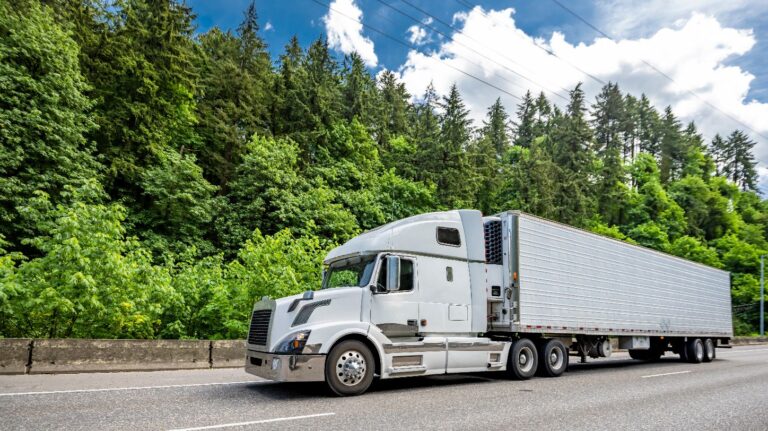US President Donald Trump has announced that 25% tariffs on medium- and heavy-duty trucks are to be implemented from 1 November.
These tariff plans were first announced in September, with Trump initially stating that they would be put in place by 1 October.
They are part of Section 232 of the Trade Expansion Act of 1962, which allows the president to impose tariffs and restrictions on imported goods deemed a threat to national security.
“Beginning November 1st, 2025, all medium and heavy-duty trucks coming into the United States from other countries will be tariffed at the rate of 25%,” Trump posted on Truth Social on 7 October.
The US president previously stated that the new heavy-duty truck tariffs could benefit companies such as Peterbilt, Kenworth and Freightliner.
However, the US Chamber of Commerce warned in May that the US trucking industry was already seeing fewer loads per week in shipping freight, impacting workers.
It also noted that the impact of generalised increases in US tariffs on the transportation and logistics sector was leading to declining demand for trucking services, which “is likely to compel trucking companies to forgo new purchases and keep trucks on the road longer”.
Additionally, it stated that imports of commercial trucks or parts used for their manufacture typically come from allied nations such as Mexico, Canada, Japan, Germany and Finland, “posing no threat to US national security”.
No official information has been released on the tariff plans. It remains unclear whether trade deals reached with nations such as Japan and the EU for light-duty vehicles will extend to the trucks.
The Trump administration also allows companies to deduct the value of US components from tariffs paid on light-duty vehicles manufactured in Canada and Mexico. The Chamber of Commerce argued that truck manufacturers should not be penalised with tariffs on parts sourced from Mexico or Canada, which accounted for 53% of US sector imports in 2024.
The US trucking sector is also facing further threats from tariffs. In August, the US Department of Commerce expanded US tariffs on steel and aluminium to 407 new products, including industrial vehicles and truck trailers.
The UK is the only country exempt from the 50% tariff on steel and aluminium imports, subject to a 25% tax instead.
However, the British steel industry is facing uncertainty amid proposals from the EU to slash tariff-free quotas and raise out-of-quota tariffs on UK steel to 50%, double that of the US. Last year some 78% of all UK steel exports were destined for the EU.







